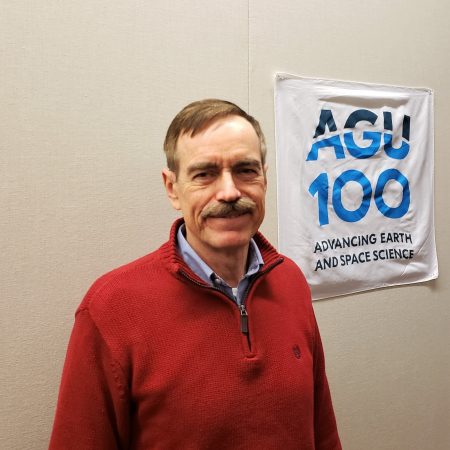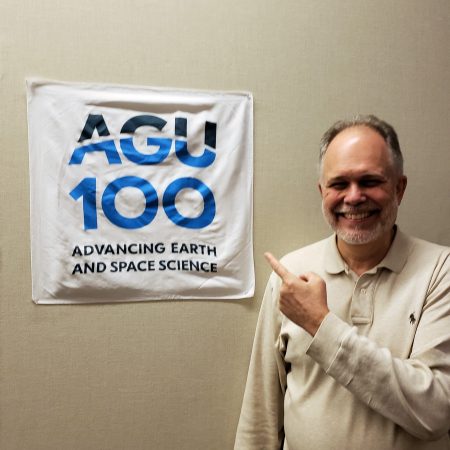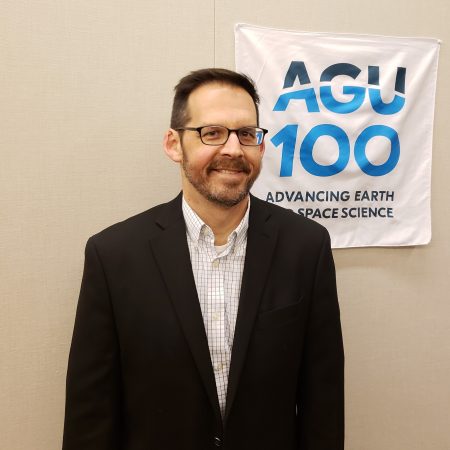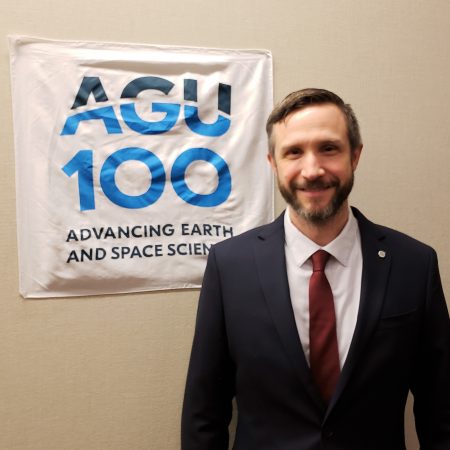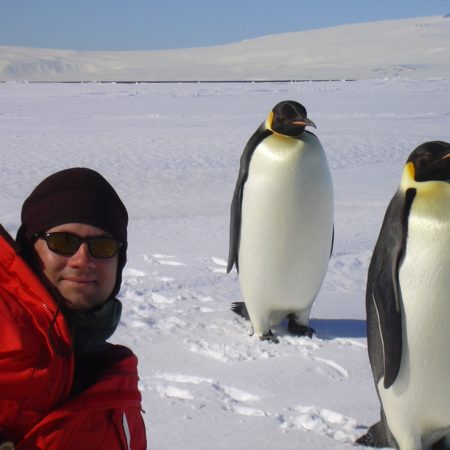Refine
Date Range Clear
Recorded by Clear
Keywords Clear
Partnerships Clear
- No matching terms.
Organizations Clear
- American Geophysical Union 14
- National Aeronautics and Space Administration 7
- Ameican Geophysican Union 1
- The American Geophysical Union 1
Places Clear
Languages Clear
- No matching terms.
Initiatives Clear
- No matching terms.
Brad Doorn’s, Water Resources and Agriculture Applied Science Program NASA, work includes forecasting the global food supply, including warnings and predictions about possible problems that might arise due to water supply shortages which can inform global market prices. While the...
Daniel Irwin’s first direct connection with NASA started in the small town of Flores in Guatemala. Amidst work dodging snakes and spiders in the jungle, he had a chance encounter with a researcher who handed him satellite mapping images of...
Stephen Running, an Emeritus Regent's Professor at the University of Montana, shares about his work with NASA studying the global ecosystem from space. Trying out a microscope at a young age ironically led him into a lifetime of looking at...
Miguel Román, a Physical researcher Scientist at NASA's Goddard Space Flight Center, shares his journey from his childhood in San Juan, Puerto Rico to NASA. Seeing the impacts of hurricanes and urban growth where he grew up, and the practical...
Steven Pawson, Chief of the Global Modeling and Assimilation Office at NASA Goddard Space Flight Center, shares his experiences working on atmospheric and Earth systems science, including interactions between the Ozone Layer and climate change, and predicting air quality for...
Michael Meyer, NASA's Chief Scientist for the Mars Exploration Program, talks about his life and work in science. As a teenager working as a deckhand on a treasure diving boat in Florida, he was hired to replace some fired divers...
John Haynes, Program Manager of Health and Air Quality applications in the Applied Sciences Program at NASA headquarters, talks about catching the “weather bug” at a young age. In first grade, he told his teacher that he wanted to be...
Dr. David Lagomasino, assistant research professor at the University of Maryland and researcher at the NASA Goddard Spaceflight Center, discusses his life in science, studying coastlines and the effects of sea level rise, erosion, deforestation, and other factors on complex...
Michael Freilich, Director of NASA's Earth Science Division, shares about his life studying the oceans and Earth as a system. While still in his high school's oceanography club, he started exploring a question about how waves move that later became...
While Patrick Taylor spends a huge chunk of his time in the clouds, his work has nothing to do with daydreaming. The Research scientist at NASA’s Langley Research Center is working on understanding more about the role of clouds in...
Amber Soja’s career is on fire. The resident at NASA’s Langley Research Center studies fire regimes and how they are being affected by climate change. “Every fire season is worse,” she says, adding that the changing fire regime is proof...
George Huffman calls himself a classic weather person, in part because by the fourth grade in North Central Ohio, he already was excited about the prospect that you could make a job studying weather. At the NASA Goddard Space Flight...
Hal Maring once risked his life for a box of fog. The physical scientist at NASA Headquarters was once on a New Zealand research cruise in the Tasman Sea when the vessel hit bad weather. They took down some of...
Lawrence Friedl discusses his life and experiences as Director of the Applied Sciences Program in the Earth Science Division at NASA Headquarters. Interested in space from a young age, he developed an interest in how the environment and public policy...
Jacob Bleacher has spent a great deal of time preparing for Mars and the moon, even though he has never left the Earth’s orbit. The research scientist at Goddard Space Flight Center is currently on detail at NASA Headquarters as...
Putting up tall PVC pipes with pointy sensors to measure electrical fields in an approaching lightning storm may seem reckless, but it’s all part of the job for Timothy Lang. The NASA research scientist spends a lot of time in...
The start of a fruitful career for Richard Eckman was being on a team which discovered that the stratosphere and ozone varied in relation to the sun’s 27-day rotation. Eckman, who now works with NASA’s Atmospheric Composition Modeling and Analysis...
James Famiglietti, hydrologist and Director of the Global Institute for Water Security, University of Saskatchewan, discusses his work with NASA's Gravity Recovery and Climate Experience (GRACE) and the evolution of technology throughout his career including its impact on water security....
David Crisp, senior research scientist at NASA, recounted his adventures, from going from a physics education major who had a paper on Venus winds published by Carl Sagan to a doctoral student at Princeton to helping fix Hubble. He described...
Cloud scientist Steven Platnick is trying to learn how clouds may magnify—or minimize—the effects of climate change. He first got excited about clouds when his Ph.D. advisor, who "treated us like equals," started asking questions about clouds. "He asked questions...
Jack Kaye, associate director for research at NASA's Earth Science Division, discuss his origins as a chemist and earth scientist, and how he was recruited to Goddard to be a chemist among meteorologists. "My boss would advertise me as his...
Chris Hain from the Short-term Prediction Research and Transition Center helps turn NASA data into information that non-scientists can use. One of his big projects is monitoring plant stress from space, which can give farmers a 2-4 week early warning...
Dr. Claire Parkinson, senior scientist at NASA's Goddard Space Flight Center since 1978, discusses using satellite data to monitor sea ice in the Arctic and Antarctic and serving as project scientist for the NASA satellite Aqua, which makes measurements of...
David Young, Director of Science at NASA Langley Research Center, discusses his life's work studying the earth's climate. After an early interest in astrophysics, he focused in on earth science due to his desire to do research to help humans....
Thomas Wagner, NASA's Program Scientist for the cryosphere, discusses how his life has developed to study the Arctic and Antarctic. Even though as a student he initially found himself bored by studying glaciology, he soon discovered a passion for polar...
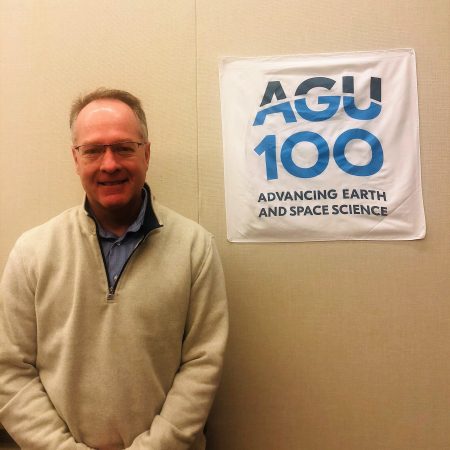
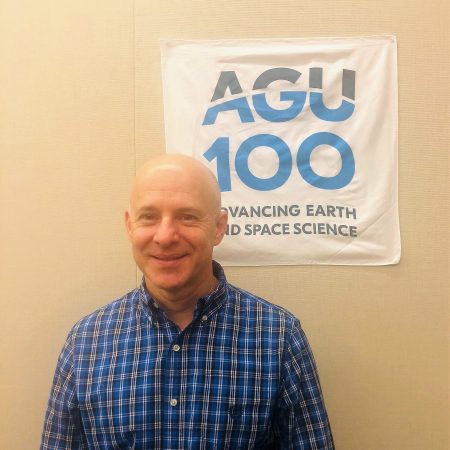
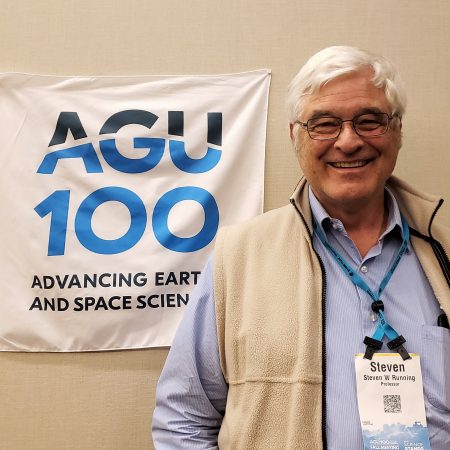


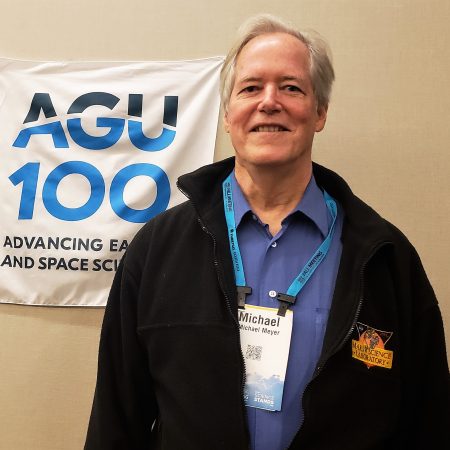
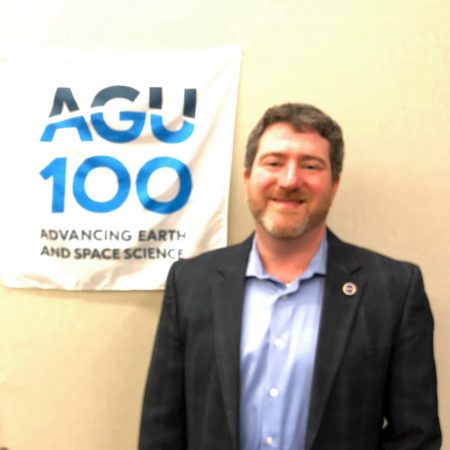
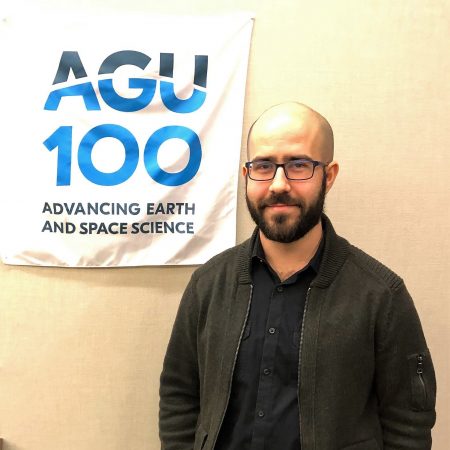
!["I joined an Oceanography club & actually asked the question that ended up [being] my thesis." an interview with Michael Freilich](https://archive.storycorps.org/uploads/2019/02/181212_Freilich-450x450.jpg)
!["Something I learn today is something that [could help] society tomorrow." an interview with Patrick Taylor](https://archive.storycorps.org/uploads/2019/02/181211_PatrickTaylor-450x450.jpg)

